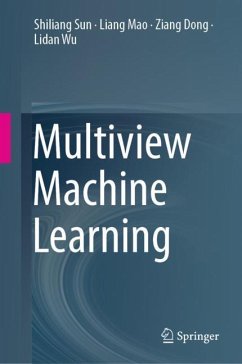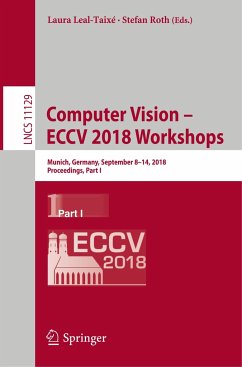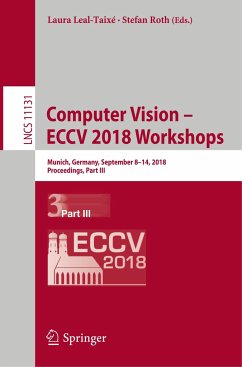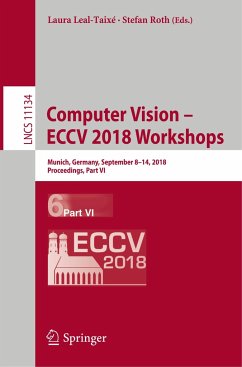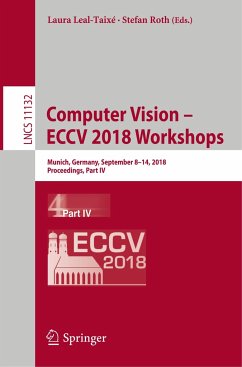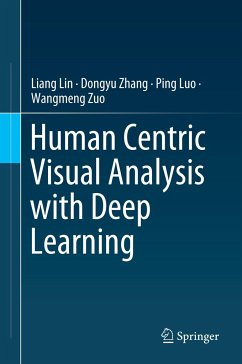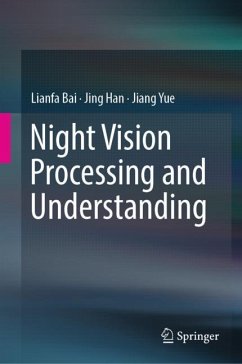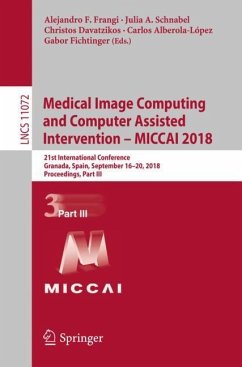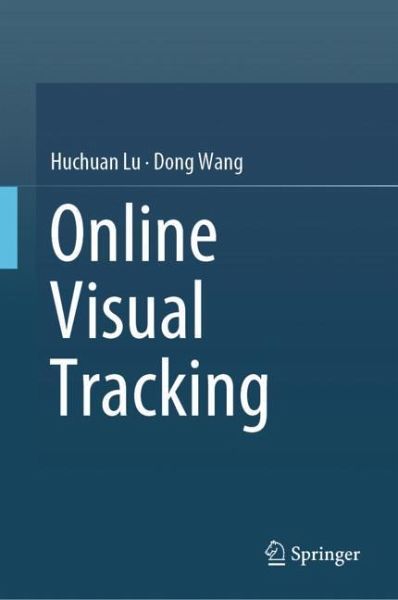
Online Visual Tracking

PAYBACK Punkte
38 °P sammeln!
This book presents the state of the art in online visual tracking, including the motivations, practical algorithms, and experimental evaluations. Visual tracking remains a highly active area of research in Computer Vision and the performance under complex scenarios has substantially improved, driven by the high demand in connection with real-world applications and the recent advances in machine learning. A large variety of new algorithms have been proposed in the literature over the last two decades, with mixed success.Chapters 1 to 6 introduce readers to tracking methods based on online learn...
This book presents the state of the art in online visual tracking, including the motivations, practical algorithms, and experimental evaluations. Visual tracking remains a highly active area of research in Computer Vision and the performance under complex scenarios has substantially improved, driven by the high demand in connection with real-world applications and the recent advances in machine learning. A large variety of new algorithms have been proposed in the literature over the last two decades, with mixed success.
Chapters 1 to 6 introduce readers to tracking methods based on online learning algorithms, including sparse representation, dictionary learning, hashing codes, local model, and model fusion. In Chapter 7, visual tracking is formulated as a foreground/background segmentation problem, and tracking methods based on superpixels and end-to-end deep networks are presented. In turn, Chapters 8 and 9 introduce the cutting-edge tracking methods based on correlation filter and deep learning. Chapter 10 summarizes the book and points out potential future research directions for visual tracking.
The book is self-contained and suited for all researchers, professionals and postgraduate students working in the fields of computer vision, pattern recognition, and machine learning. It will help these readers grasp the insights provided by cutting-edge research, and benefit from the practical techniques available for designing effective visual tracking algorithms. Further, the source codes or results of most algorithms in the book are provided at an accompanying website.
Chapters 1 to 6 introduce readers to tracking methods based on online learning algorithms, including sparse representation, dictionary learning, hashing codes, local model, and model fusion. In Chapter 7, visual tracking is formulated as a foreground/background segmentation problem, and tracking methods based on superpixels and end-to-end deep networks are presented. In turn, Chapters 8 and 9 introduce the cutting-edge tracking methods based on correlation filter and deep learning. Chapter 10 summarizes the book and points out potential future research directions for visual tracking.
The book is self-contained and suited for all researchers, professionals and postgraduate students working in the fields of computer vision, pattern recognition, and machine learning. It will help these readers grasp the insights provided by cutting-edge research, and benefit from the practical techniques available for designing effective visual tracking algorithms. Further, the source codes or results of most algorithms in the book are provided at an accompanying website.



